
Earning a degree in digital communications will help you capitalize on opportunities you may be presented with. You can create websites, graphics, or any other type of digital tool that can be used to communicate with your peers and your customers. You will learn how to communicate using all forms of digital tools. Your degree will make it easy to use the skills you already have and build a career you can be proud of. Digital communication is the future of most types of media. Enroll in a digital communications degree program and find out how far you can go.
A Bachelor’s in Digital Communications degree will allow you to work in the entertainment industry, marketing, journalism, and the digital development of websites and other forms of graphic design. The best thing about this type of degree is that it gives you everything you need to work as a part of a reputable, professional design team. You also have the option of going out on your own and starting your own digital communications company. You can set your own hours and rates, as well as only choose to work on the projects you enjoy.
Methodology: Ranking the Best Digital Communications Degree Programs
For the Bachelor’s Degree Center ranking of the best degrees in digital communications, editors researched on-campus digital communications programs from accredited, reputable institutions of all kinds. We rank programs with data from IPEDS and Niche, including tuition rate, student satisfaction, and potential salary.
1. University of Maryland

The University of Maryland has a BA degree in digital communications that provides foundational knowledge for students who want to work in digital communications and media. The digital communications degree offers specializations in media and digital communication, health and science communication, political communication, public relations, and public advocacy. The courses differ according to the major selected. Students study research methods, communication in society, the foundations of communication, leadership and social change, and other foundational courses.
The University of Maryland is located in the Washington DC area and there are 28,500 students in this large school. Just 44% of students who apply get the green light from the admissions committee and popular majors include economics and biology. The school graduates an impressive 87% of its freshman.
What We Like: The University of Maryland is the state’s top public university and students give the school an A grade when it comes to academics, diversity and value.
Degree: BA Communication
University of Maryland BA digital communications
2. Washington University in St. Louis

Washington University in St Louis offers a degree in digital communications. This digital communications degree culminates in a bachelor of science and communications. The program focuses on organizational, political, cultural and digital skills. Core courses include communications ethics, theory, law and research. Students are also required to select a specialization such as public relations, applied media practice, integrated marketing or professional writing.
At WashU, students can inspire one another through tenacity and creativity. The school strives to create a learning environment that fosters confidence and helps students build the skills they need to pursue professional careers in communications. Faculty members are leading practitioners in their field and mentor students on independent projects.
What We Like: The admissions process is extremely competitive, with only 14% of applicants accepted into the student body. Also, just 51% of students receive financial aid. However, 91% of students say professors put a lot of effort into each class.
Degree: Bachelor of Science in Communications
Washington University in St Louis BS in Communications
3. University of South Florida

The University of South Florida has a robust digital communications program that culminates in a bachelor’s degree. There are 25 courses offered each semester and the department of journalism and digital communication varies them each semester. In this digital communications degree program, students learn principles, theories and issues facing journalists and media professionals today. Journalists serve as a cornerstone of democracy and students learn about the responsibility of providing accurate and timely information to fellow citizens.
South Florida is located in Tampa, Florida, and this well-respected school has 25,000 undergraduate students studying majors such as liberal arts, molecular medicine and health services. The admissions committee selects fewer than half of applicants to become a freshman at the university, but it graduates nearly three out of four students who come to the school.
What We Like: The University of South Florida ranks third among the state’s top public universities, according to niche.com
Degree: BA in Digital Communication & Multimedia Journalism
University of South Florida BA in Digital Communication & Multimedia Journalism
4. University of Houston

The degree in digital communications at the University of Houston confers a BS in digital media to graduates. This digital communications degree encourages students to become industry leaders. That means understanding technology associated with publishing traditional and digital content. Getting the right message to the right people connects products with those who could use them to improve their lives. Whether students want to become journalists or pursue careers in marketing and advertising, this program helps them learn how to reach their intended audience. In a technology-driven world, this program prepares students to use software programs that assist with both publishing information and measuring the response.
The University of Houston has been educating students for four decades, and it strives to serve the needs of students in Houston and across the country. It offers both bachelor’s and master’s degree programs in digital media.
What We Like: Houston has a great acceptance rate of 89%, giving many students an opportunity to pursue their higher education. Additionally, the majority of students, 83%, received some port of financial aid.
Degree: Digital Media, BS
University of Houston BS in digital media
5. Texas Tech University

Texas Tech University has a unique degree in digital communications. Students earn a BA focusing on digital media and communications. As they pursue their digital communications degree, students will master skills that help them boost their resume. Employers and graduate schools alike recognize this degree from a prestigious university. Many graduates seek jobs in media and communications while others become lawyers, writers and go into related professions.
Texas Tech University was founded as a research university, and it is open to the public. It offers creative and innovative education to students. It places an emphasis on research and scholarship and students learn skills that help them compete in a global workforce.
What We Like: About 78% of students receive some form of financial aid, making it highly likely that students who need help can find it. Also, 93% of students said that they found employment within two years of graduation.
Degree: BA in Digital Media and Professional Communication
Texas Tech University BA in Digital Media and Professional Communication
6. University of North Texas Dallas

The University of North Texas Dallas also has a degree in digital communications that prepares graduates for jobs in the field. Students who complete this digital communications degree sometimes go on to pursue a master’s degree. Students gain skills needed to excel in a highly competitive field that demands flexibility and continuous learning. Some graduates currently work in digital production, sports broadcasting, and strategic marketing communication. These learners build their collaborative and creative skills and also have access to professional networks.
University of North Texas at Dallas has 2,700 students and accepts just 47% of those who apply. Due to the competitive application process, prospective students are advised to spend some time making their applications stand out.
What We Like: This program may be a good fit for students who want careers as TV producers, on-air talent, graphic designers and marketers.
Degree: Bachelor’s in Communication & Technology
University of North Texas Dallas Bachelor’s in Communication & Technology
7. Texas State University

Texas State University has a BA in digital media innovation. This degree in digital communications immerses students in the knowledge they need to pursue careers in this competitive field. Designated as a science, technology, engineering and math program, the program offers students a rigorous academic experience. This focus gives graduates of this digital communications degree an edge over competitors with a less rigorous academic background. Tech-savvy graduates emerge with a strong set of communication skills and the education they need to get entry-level jobs or pursue grad school.
Texas State is a respected public school in San Marcos, TX. This large school has 20,000 undergraduate students and accepts more than four out of five students who apply, giving applicants great odds that their application will be accepted. Popular majors include psychology and business. Additionally, more than 76% of students receive some form of financial aid.
What We Like: Texas State University is ranked number six among the state’s top public schools.
Degree: BA Digital Media Innovation
Texas State University BA Digital Media Innovation
8. New York University
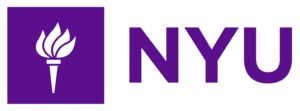
New York University also offers a degree in digital communications where graduates earn a bachelor of science in digital communications and media. A digital communications degree prepares students for a fast-changing professional environment. This program is hands-on and helps develop the technical an artistic virtuosity of its students. Theoretical topics include the impact of media on listeners and viewers.
NYU is proud of its reputation as a university with no walls. The school strives to make the learning experience as much like real-life working scenarios as possible. This helps students gain the confidence they need to seek internships, jobs and careers in digital communications.
What We Like: Students seem to regard NYU highly, as they gave the university an A+ in academics and diversity.
Degree: BS in Digital Communications and Media (DCoM)
New York University BS in Digital Communications and Media
9. University of North Dakota
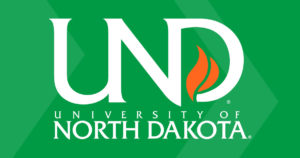
The degree in digital communications at the University of North Dakota allows students to customize their major. This digital communications degree offers specializations in digital journalism, advertising, strategic communication, public relations, digital analytics, and social media strategy. UND also has a Ph.D. in communications program for students who want to delve further into the field and teach at a college or university.
The University of North Dakota has a variety of degree programs that allow students to go into jobs where they can save lives and engineer the future. It also has the only law and medical degrees in the state.
What We Like: UND is the second-best college in the state, so students gain a high-quality education from a well-known university.
Degree: Communication B.A
University of North Dakota Communication B.A
10. University of Baltimore

The University of Baltimore has a highly rated degree in digital communications. As part of this digital communications degree, students master the social media and mobile skills needed to succeed in digital communications jobs. Graduates go on to work for private and government employers seeking communication specialists in marketing, production and writing. Students learn how to write, design and manage digital media campaigns.
University of Baltimore has 1,500 undergraduate students and accepts the majority of those who apply. In fact, 78% of students who apply get the green light from the admissions committee. Some of them go on to study forensic science or technology.
What We Like: The University of Baltimore has a great reputation and niche.com ranks it among the top five universities in Maryland open to the public.
Degree: B.A. in Digital Communication
University of Baltimore B.A. in Digital Communication
11. University of Texas at San Antonio

At the University of Texas at San Antonio, students can pursue a degree in digital communications. With a digital communications degree, UTSA students pick up the skills they need to succeed in digital and media jobs. Students choose a specialization to help them pick up skills that can stand out on a resume. These three concentrations include public relations, health communication and digital communication. Students who studied digital communication learn how to create and distribute information across various platforms. Successful graduates learn how to write compelling copy used in strategic contact management and other digital communications careers.
UT San Antonio has 22,000 undergraduate students and is considered an above-average university open to the public. The school has an acceptance rate of 77%, meaning three out of four students who apply receive an offer letter.
What We Like: About 77% of students who apply are welcomed into the school and 83% of graduates find jobs in their field within two years of graduating,
Degree: BA Digital Communication
University of Texas at San Antonio BA Digital Communication
12. Old Dominion University

Old Dominion University also has a degree in digital communications. Students in this digital communications degree get a unique perspective. The degree sits within the Communication and Theatre Arts Department at Old Dominion. The bachelor’s degree acts as an acceleration program for the corresponding master’s degree in life span digital communication. This allows students to pursue employment in digital communication upon their graduation or complete their master’s quickly.
Old Dominion is in Norfolk, VA, and accepts 89% of those who apply. This phenomenal acceptance rate opens the opportunity to study criminology, psychology and mental health or any of the university’s other compelling degree tracks to a broad array of students.
What We Like: Approximately 94% of students receive some form of financial aid and 84% of those surveyed found jobs in digital communications within two years.
Degree: BA/BS
Old Dominion University BA/BS digital communications
13. University of South Carolina Aiken

The University of South Carolina Aiken has a degree in digital communications that teaches students how to communicate effectively with clients and coworkers. This digital communications degree focuses on communicating well and thinking critically. Graduates emerge with a deep understanding of how to persuade audiences through effective digital media messaging. This program borrows courses from speech communication, digital communication, and media courses. Students prepare for jobs in social media, public relations, sports information, integrated marketing, visual communication and desktop publishing. The school also has an excellent video editing track that some students pursue.
USC Aiken is a large university that focuses on small class sizes to give students the attention they need online or offline. The average class size is 15 students to one faculty member, and this is true across all majors. Students have access to cutting-edge technology and teachers who are leaders in their respective fields.
What We Like: The University of South Carolina Aiken is among South Carolina’s top six public universities.
Degree: BA Communication and Digital Arts
University of South Carolina Aiken BA Communication and Digital Arts
14. Azusa Pacific University

Azusa Pacific University offers a degree in digital communications completion program. This digital communications degree helps students become effective writers and adept storytellers across digital media platforms. most students entering this program transfer from two-year colleges that have reciprocal relationships with APU. The program is designed to be completed in two years by students taking classes twice a week. It’s ideal for working professionals who prefer a classroom environment over online learning.
APU focuses on providing opportunities for students outside the classroom as well as inside it. The school prepares students for jobs or grad school but also encourages them to participate in campus life. Those who attend APU can opt for a semester abroad and play intramural sports.
What We Like: About 98% of students receive financial aid and 88% of those surveyed thought instructors put a lot of time into their courses.
Degree: BA in Digital Media and Communication
Azusa Pacific University BA in Digital Media and Communication
15. Gwynedd Mercy University
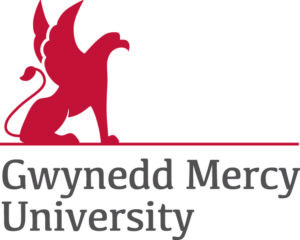
Gwynedd Mercy University offers a BS in digital communication. The degree in digital communications serves as a launching pad for those who want careers in corporate communications, public relations, and content creation. With this digital communications degree, students perfect their writing, editing and marketing skills and gain the confidence needed to craft impactful messages. Earning a four-year degree helps students boost their salary potential upon graduation.
Gwynedd Mercy University has a Griffin Edge program that guides students on their personal journeys. The school provides resources that help students connect the dots between their current coursework and future career goals. The university strives to achieve the five E’s: excellence, experience, engagement, encouragement and empathy. While achieving academic excellence is crucial for students who want to pursue grad school or find competitive job opportunities, engaging in the student community online and offline can enrich the college experience. University faculty and staff members encourage students and urged them to treat one another compassionately. Against this backdrop, the universities robust academic environment helps students gain the skills and confidence to land jobs that match their talents.
What We Like: 100% of GMercyU’s first-time, full-time students received some form of financial aid in 2019–2020.
Degree: BS Digital Communication
Gwynedd Mercy University BS in digital communication
16. Saint Leo University

There is a degree in digital communications at Saint Leo University. This digital communications degree has three tracks that students can choose from. They include social media influencers, digital communication and communication studies. The major prepares students to create effective messages and engage audiences online.
Saint Leo is a well-regarded Catholic university located in the Tampa area. This midsize school has more than 6,000 undergraduate students. It does have a competitive environment since just 72% of students who apply get into the school. Those who do make the cut may choose liberal arts and humanities, criminal justice or digital communications as their majors.
What We Like: Approximately seven out of 10 applicants get into Saint Leo and all of them receive some kind of financial assistance to make school more affordable.
Degree: Bachelors in Comm w/ Digital Communication track
Saint Leo University Bachelors in Comm w/ Digital Communication track
17. Briar Cliff University

At Briar Cliff University, students can earn a degree in digital communications. The school provides access to technology and software that students use to build skills needed to complete their digital communications degree. The school has excellent courses in digital photography and content. Faculty members are working members of the industry for subjects they teach. This allows students to gain insight from working journalists with decades of experience in video, newspaper and broadcast media. The school offers robust internship programs for students to gain hands-on experience in the field.
Briar Cliff graduates pursue careers in broadcast and print journalism, freelance writing and public relations. This Catholic university is located in Sioux City, Iowa and has just 731 students at the undergraduate level, although it accepts all students who apply.
What We Like: About 92% of students surveyed found that their professors were engaged and put effort into their classes. Additionally, 87% of students surveyed said it’s easy to get the classes they wanted.
Degree: BA in Digital Communication & Multimedia Journalism
Briar Cliff University BA in Digital Communication & Multimedia Journalism
18. Wilmington University

Wilmington University has a degree in digital communications designed to produce modern communicators that are well-rounded. This digital communications degree teaches students strategic communication, branding and storytelling skills. Learners customize their bachelors with a concentration that meets their specific career goals. Concentrations include broadcast, digital and print media channels. Students who choose public relations and strategic communication at Wilmington University receive hands-on training from faculty members with many years of experience.
Wilmington U is located in the Philadelphia area and has almost 3,500 undergraduate students. It’s a great place for students looking for a school that has an open enrollment policy. Wilmington U accepts 100% of students who apply and some students decide to major in behavioral sciences, business or nursing.
What We Like: With 100% acceptance policy, the university is a great choice for students who didn’t do well on standardized test or who have poor GPA scores. However, just 63% of students receive some form of financial aid.
Degree: Bachelors in Communications w/ a Digital Journalism degree concentration
Wilmington University Bachelors in Communications — Digital Journalism
19. Lebanon Valley College

Lebanon Valley College has a degree in digital communications that helps students learn how to design mobile apps, create branded identities and develop advertising campaigns. This digital communications degree combines science and art to help students master technology and hone their creative edge. Learners game experience with industry-standard software and concentrate in communications, business technology, videography, user experience or programming.
Lebanon Valley is a respected Christian school located in Annville, PA. Four out of five students who apply are accepted into this small University with 1,700 undergraduate students.
What We Like: 100% of students receive some form of financial aid and 75% of students agree that their professors are engaged and put effort into their courses.
Degree: BA Digital Communication
Lebanon Valley College BA Digital Communication
20. Northern Vermont University

Northern Vermont University has a degree in digital communications that takes an interdisciplinary approach. This digital communications degree program gives students the skills they need to pursue careers upon graduation. Students take classes in business and social media and also spend time in the visual arts department learning to create and maintain websites. Students learn how to collaborate with peers and gain digital editing and storytelling skills.
Northern Vermont University is a public school with 900 undergraduate students. It accepts nearly everyone who applies. In fact, 97% of applicants receive a welcome letter from the university.
What We Like: Nearly all Northern Vermont students receive some form of financial aid.
Degree: Digital Communications, PR & Marketing BS
Northern Vermont University Digital Communications, PR & Marketing BS
21. Cabrini University
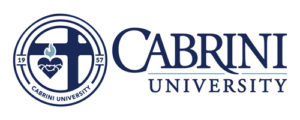
Cabrini University has an excellent degree in digital communications. This competitive digital communications degree teaches students widely transferable skills. Graduates often find jobs in television, advertising, event management, social media, sports communications and other related fields. Some students pursue graduate studies or go to law school upon completion of their degree.
Founded in 1957, Cabrini University is a Catholic school that welcomes learners of all cultures and faiths. It offers both undergraduate and master’s degrees for students who would like to pursue grad school. Students emerge empowered to make a difference in the lives of others and find professional fulfillment.
What We Like: The university accepts 76% of students who apply and those who attend almost universally find some kind of financial aid. In fact, 94% of students received financial assistance.
Degree: Digital Communication and Social Media BS
Cabrini University Digital Communication and Social Media BS
22. Neumann University
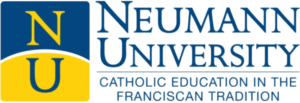
Neumann University’s degree in digital communications leads to employment opportunities at employers such as ABC 7 and Avalon recording company. This digital communications degree focuses on providing hands-on experience that helps students land internships or jobs at employers such as Columbia records, Bristol Riverside Theatre, Bayshore Christian Ministries, and other companies.
Neumann University was founded in 1965. This private Catholic school emphasizes respect for individuals and social responsibility. It was founded by Franciscans and offers doctoral programs, master’s degrees and an array of accelerated bachelor’s degree programs. This makes it easy for students to move on to grad school should they choose to do so.
What We Like: Neumann University could be a great match for returning adult students looking for a University that reflects their conservative beliefs.
Degree: BA in Communication and Digital Media
Neumann University BA in Communication and Digital Media
23. West Virginia University — Parkersburg

West Virginia University Parkersburg has an excellent degree in digital communications that focuses on media and communication studies. With this digital communications degree, students can find jobs working for online agencies, news outlets and other entities.
West Virginia University is the top public institution in Virginia and has 20,000 students. Journalism is one of the most popular majors at this prestigious school. The school accepts 84% of those who apply.
What We Like: Of students surveyed, 88% say professors put effort into their classes to make them interesting. Also, 76% of students thought they could get the classes they needed without difficulty.
Degree: Bachelor of Applied Science in Media & Communication Studies with a concentration in Digital Communication
West Virginia University Parkersburg BAS in Media & Communication Studies
24. Full Sail University

Full Sail University also has a degree in digital communications. The university’s digital communications degree gives students foundational knowledge and skills needed to work for today’s ever-changing media industry. This project-based program teaches students the skills they need to complete audio and video production projects. Learners also study graphic design, storytelling and related topics.
Full Sail University is located in Winter Park, Florida. The school has a creative approach to education and espouses fast-paced approaches. This is designed to reflect real-world workflows so that students emerge ready to take on jobs in digital and media industries.
What We Like: Students gave Full Sail University an A for its academic offering.
Degree: Media Communications BS
Full Sail University Media Communications BS
25. Sacred Heart University

Sacred Heart University has a dynamic degree in digital communications for students who want to become leaders in communication technology. This digital communications degree appeals to students who want a broad education that focuses on both understanding the theory behind digital communications and the technical side of the industry. Students complete 42 credits that include 12 required classes and two electives.
Sacred Heart is based in the New York City area and this well-regarded university has over 5,000 undergraduate students. It has a very competitive admissions process and acccepts just 64% of students who apply. However, the university graduates 73% of its students.
What We Like: All students at Sacred Heart University receive some form of financial assistance. This makes it easier for students who don’t have the funding to pursue their degree while juggling work, family and other obligations.
Degree: BA Digital Communication
Sacred Heart University BA Digital Communication
Why Should I Get a Bachelor’s in Digital Communications?
Digital communication is one of the fastest-growing industries in the world. It has become so much a part of our daily lives, that many of us wouldn’t know what to do without it. Even older individuals have a hard time trying to remember what it was like without today’s advanced technology and digital forms of communication. From simple emails and texts to encrypted digital graphics, this type of communication has made dramatic changes in how we run our day-to-day lives. A digital communications degree will help you make the most of every opportunity, no matter what industry you work in.
What Is the Digital Communications Field?
What is digital communications? Basically, the definition of digital communications is any type of communication that uses a digital platform. This can include content, images, graphics, emails, texts, websites, digital journalism, and many others. Digital communication has also expanded to include live-streaming that is used in such platforms as Teams and Zoom. Digital communication is one of the easiest ways to communicate with large groups of people at one time.
In the corporate world, digital communications take many forms. Written content, like that found in emails or digital flyers, is one of the most common forms. It encourages live communication such as live chats, streaming video, and graphics that can relay vital information. Interactive communication allows potential customers to interact with companies. They can ask questions, watch videos, and provide videos that will educate the customer about the company and what they represent.
The digital communications field is very diverse and will continue to evolve very quickly. As today’s technology continues to advance, it is safe to say that digital communication won’t be hard to find. Returning to your school to audit or enroll in a certification program will allow you to keep up to speed with all of the changes. If you have already started working in a digital media field, taking advantage of all the new opportunities and challenges is one of the best things you can do if you want to gain experience in the field.
Why Is Digital Communication Important?
If you are wondering why digital communications is so important. Simply look around you. Almost every form of communication has a digital connection. Whether you work with traditional media, social media, or any other type of communication platform, you need specific skills ha will allow you to function as part of a media repair team or as an independent contractor. No matter what path you choose, you will be playing an integral role that will enhance interpersonal communication on every level.
With more and more traditional media outlets converting from analog to digital formatting, more and more graduates will be needed to keep the industry moving forward. It’s important to remember how much we rely on digital forms of communication in our day-to-day lives. Whether you choose to work with content, images and video, or graphics, communication on a digital level is constantly growing and expanding. The goal of most students who earn a degree in digital communication is to maintain the most current level of information possible.
The importance of digital communication is tangible. It is how we share everything from trade secrets to family recipes. Enrolling in a digital communications degree program is your first step to a brighter future and a long and successful career. Once you graduate, you will have all of the necessary skills you will need to take care of business and perform all of the tasks required of you. You will also have the management skills you need to advance over and above what you would have ever dreamed of.
Related Rankings:
